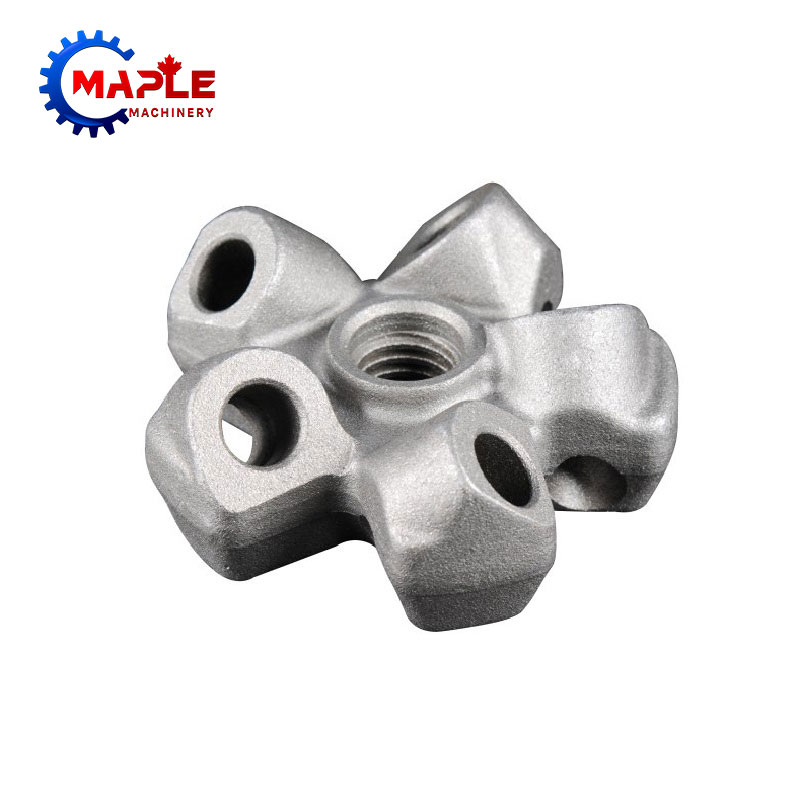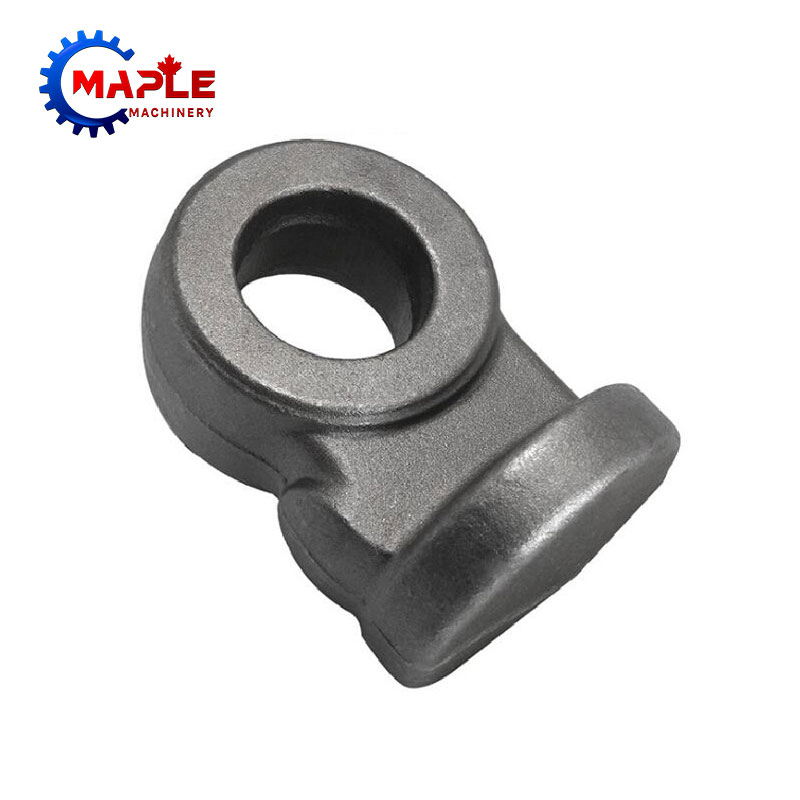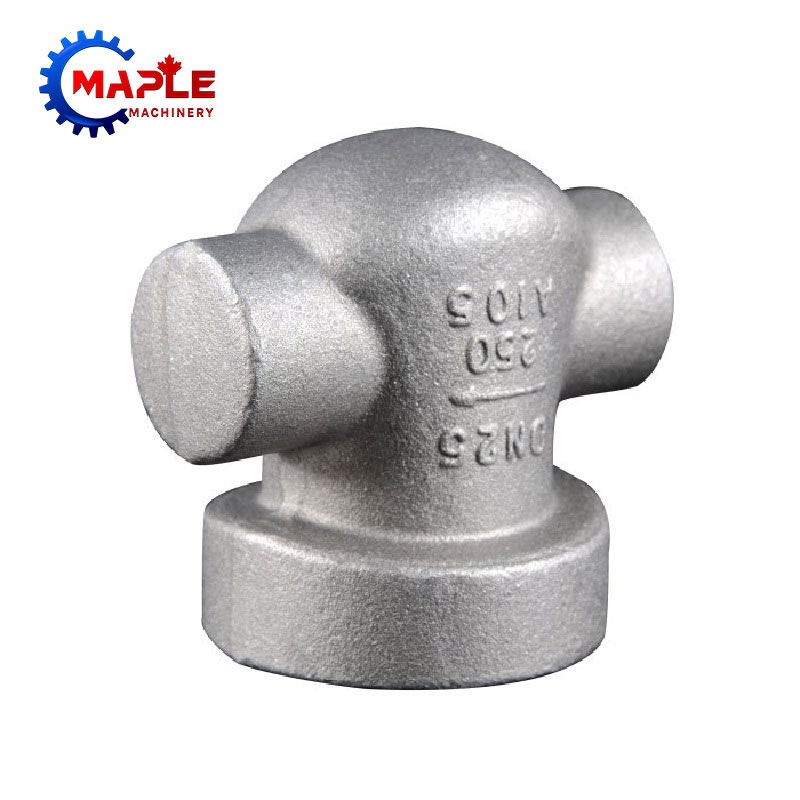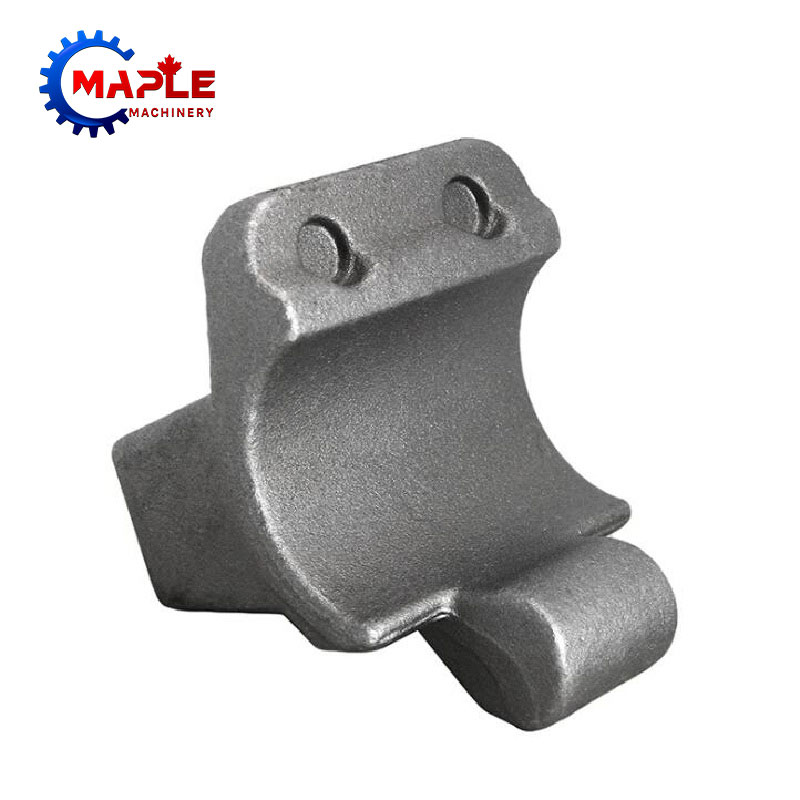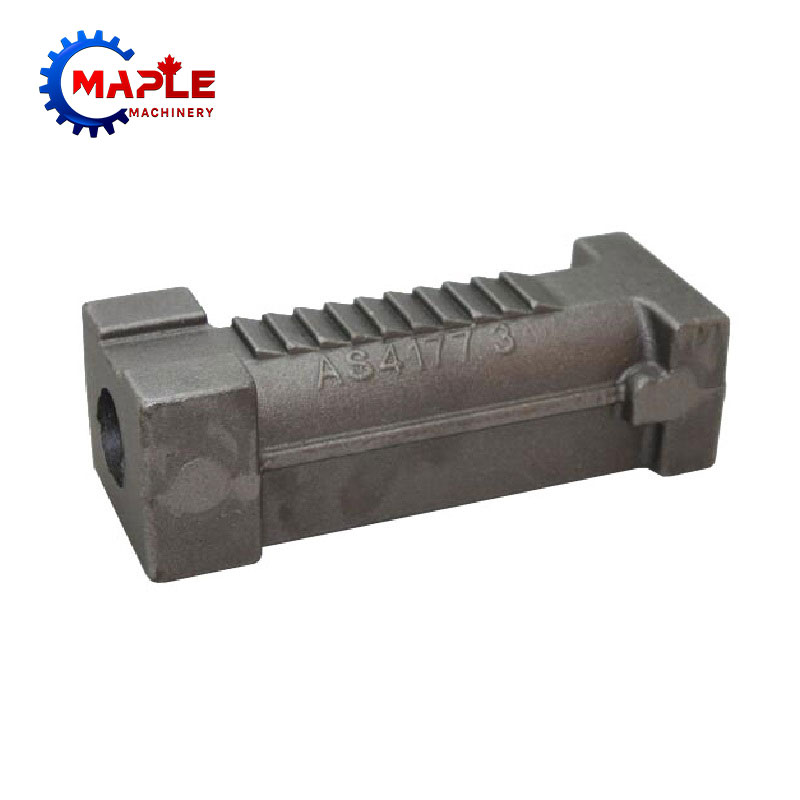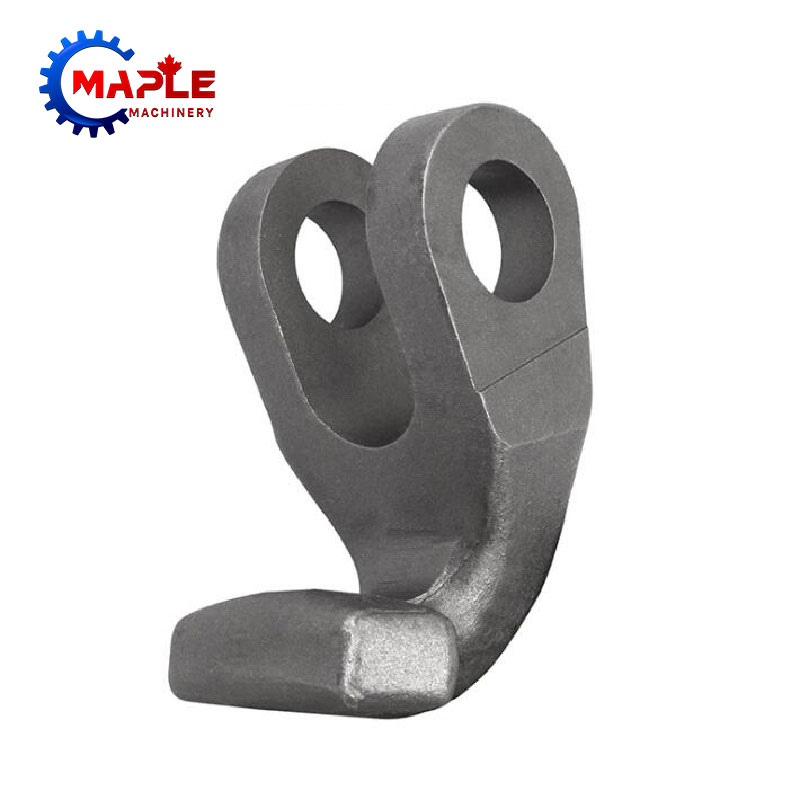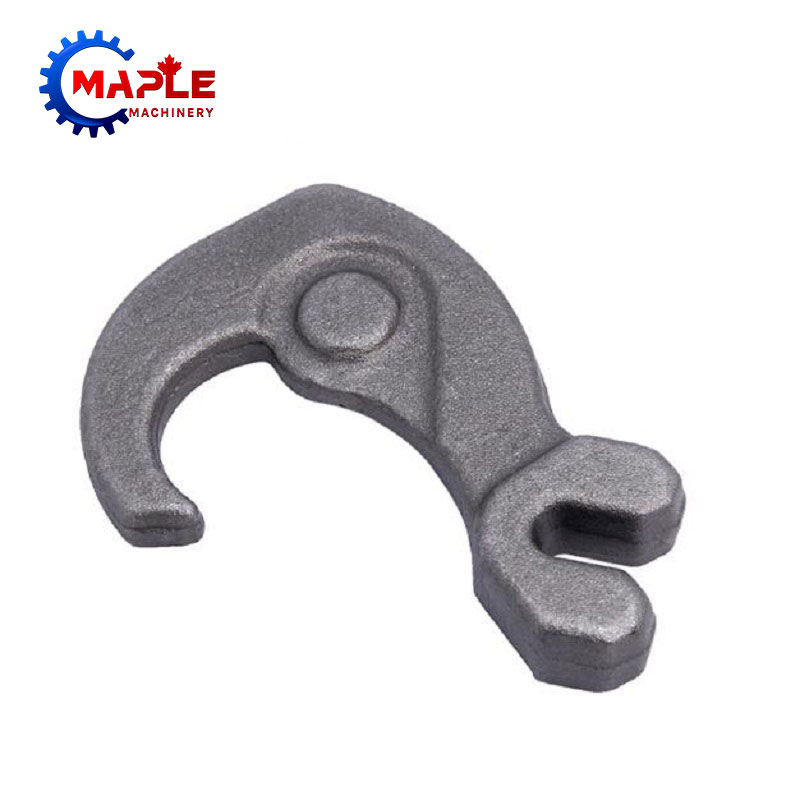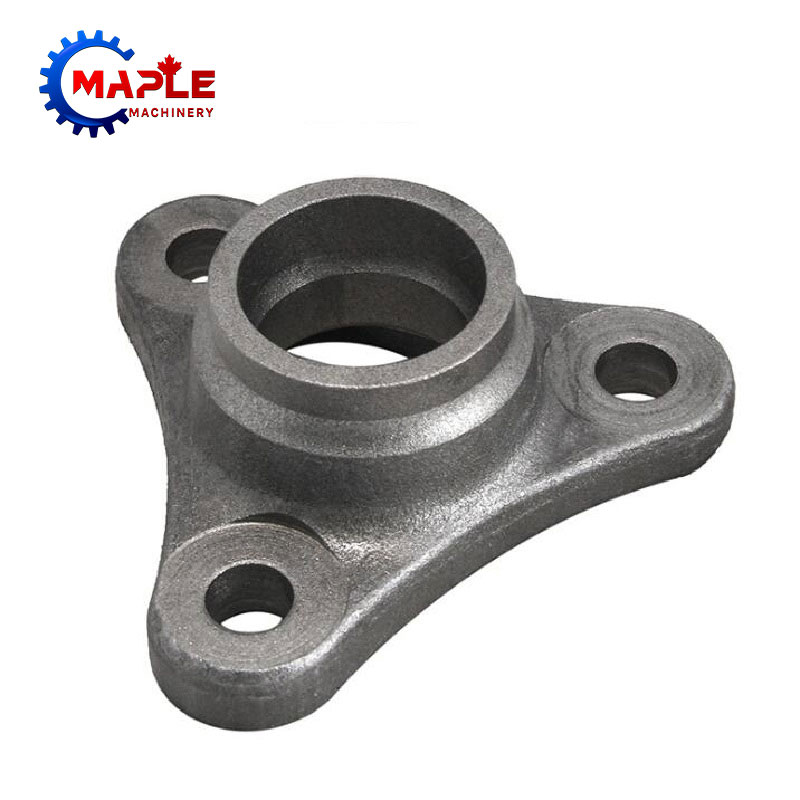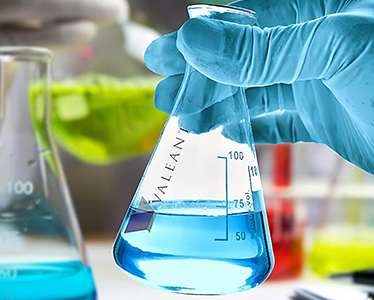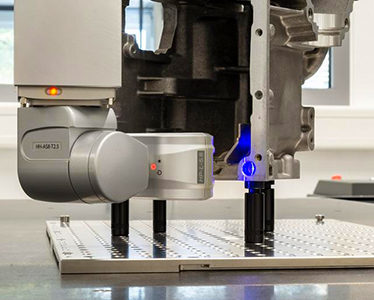Agricultural Machinery Steel Forging Parts
For more than 20 years, Maple Machinery Co., Ltd., located in Ningbo, China, is a professional manufacturer of closed die forgings, specializing in providing customers with high-quality Agricultural Machinery Steel Forging Parts. In addition, we can also provide other value-added services for finished products. Therefore, if you need forging and machined parts, please feel free to contact us!
Send Inquiry
Agricultural Machinery Steel Forging Parts
1.Product Introduction
In modern agriculture dominated by mechanized production, steel forgings account for 25% of mechanical equipment parts because of their excellent strength performance and lower cost.Agricultural Machinery Steel Forging Parts we manufacture are supplied to agricultural machinery manufacturers, which improves the strength and service life of the equipment and reduces the comprehensive cost.
2.Product Parameter (Specification)
|
Item |
Agricultural Machinery Steel Forging Parts |
Roughness |
Ra 1.6 |
|
Tolerance |
±0.01mm |
Material |
Alloy Steel |
|
Certification |
ISO 9001:2015 |
Weight |
0.01-60KG |
|
Machining |
CNC |
Heat Treatment |
Quenching & Tempering |
|
Inspection |
MT/UT/X-Ray |
Lead Time |
30 Days |
|
Package |
Plywood Case |
Method |
Closed Die Forging |
|
Capacity |
50000 Pcs / Month |
Origin |
Ningbo, China |
3. Maple’s Servicesfor Agricultural Machinery
◉ Maple Machinery has been making Agricultural Machinery Steel Forging Parts for many years now. We have been producing agricultural machinery and forgings for several applications. Our field equipment components, measuring and control devices, valves, and more, are of top quality and cost-effective and carry the highest degree of durability.
◉ We know how to create quality machinery for agricultural purposes that can withstand larger loads and survive harsh environments. The products manufactured by Maple Machinery meet and exceed customer requirements and expectations.

4.Supporting Service for Agricultural Machinery parts
◉ As mentioned above, in order to work in adverse conditions, the performance of the Agricultural Machinery Steel Forging Parts must be excellent. Therefore, it’s not enough to only produce raw castings or forgings, but also need heat treatment, machining, surface treatment, NDT testing, etc.
◉ Heat treatment: heat treatment is the critical step to improve the mechanical properties of the workpiece. We can formulate the process according to the strength requirements of the parts, and improve the mechanical properties of the parts such as hardness, yield strength, tensile strength and elongation by heat treatment
◉ Machining: we have our own machine shop, and can complete almost all machining requirements with advanced equipment.
◉ Surface treatment: the purpose of surface treatment is to make parts work in adverse environment. Zinc plating can prevent parts from rusting; Nickel plating can enhance the wear resistance and corrosion resistance of parts; Phosphating can prevent parts from corrosion…
◉ Non-destructive testing (NDT): NDT is the last and most important step. Maple will NDT the parts to ensure that there are no surface defects (such as cracks, sand holes, blow holes) and no internal defects (shrinkage and slag) on the delivered parts.
◉ Common Material for Agricultural Machinery
We have the ability to manufacture all steel standard materials as well as special materials. The following are our common materials for manufacturing Agricultural Machinery Steel Forging Parts:
Carbon Steel:1015,1020,1035,1045,20Mn,25Mn,A570.GrA, SJ355, C45…
Alloy Steel:4130,4135,4140,4340,8620,8640,20CrMo, 42CrMo4, 34CrNiMo6, 25CrMo…
Stainless steel:304, 304L, 316, 316L, 410, 416, CF8, CF8M, PH17-4, CK20…
Gray Iron:GG-15,GG-20,GG-25,Class 20B,Class 25B,Class 30B, GJL-250, GJL-300…
Ductile Iron:GGG-40,GGG-50,60-40-18,65-45-12,70-50-05, 80-55-06 QT500-7, QT400-18, QT700-2…
High Chromium cast iron:15%Cr-Mo-HC,20%Cr-Mo-LC,25%Cr…
Aluminum:AlSi7Mg, AlSi12, AlSi10Mg, A356,A360…
High Manganese steel: X120Mn12, Mn12, Mn13…
5.The Parts We Supplying for the Agricultural Machinery
We have manufactured a wide range ofAgricultural machinery steel investment casting parts. The following are typical products:
Brackets, Rototiller tines, Tillage Points, Seed Drills, Chain Sprocket Locust Harrows, Levers, Plough, Pivots, Covers, Clevises, Handles and Latches, Suitcase Weights, Pumps & Valves, and Hardware.
6. Why Closed Die Forging
Compared with casting, forging has its special advantages:
1. In the case of the same material, the mechanical properties of forgings are better than those of castings.
2. The forgings strength is higher and the fatigue resistance is stronger.
3. The forgings has better compactness.
4. There are no internal defects and surface defects.
5. Fast production speed, high efficiency, suitable for mass production of products.
6. The product quality is stable.





















































